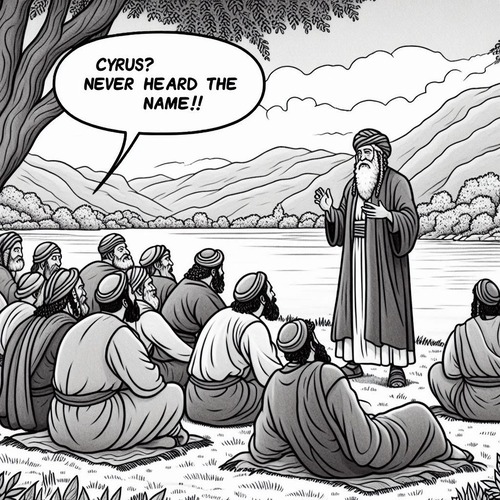Why Do We Affirm the Bible’s Reliability? Five Compelling Reasons
Affirm the Bible’s Reliability? Why Bother?
The Bible. It’s a book that’s shaped civilizations, sparked revolutions, and inspired countless lives. But with so much information out there, and in an era brimming with scepticism, can we really trust what it says? Here are five compelling reasons why the Bible might be more reliable than you think:
Fulfilled Prophecies—The Bible’s Prophetic Punch: Imagine a book written thousands of years ago that accurately predicts the rise and fall of empires, the coming of a Messiah, and even details of his life. The Bible does just that! Over 100 specific prophecies have come true, from the destruction of cities to the life of Jesus Christ. The Bible’s prophecies are not mere coincidences; they are precise predictions that have unfolded through history. Collectively, they lend credence to the Bible’s divine inspiration.
Ahead of Its Time—Science in the Bible: The Bible wasn’t meant as a science textbook, but it throws out some surprisingly accurate scientific titbits. Long before science caught up, the Bible described a spherical Earth suspended in space (Isaiah 40:22) and hinted at the water cycle (Ecclesiastes 1:7). It also recognized the importance of hygiene and quarantine (Leviticus 15:13), principles that underpin modern concepts of public health. These insights suggest the Bible might be tapping into knowledge beyond its time.
Digging Up the Truth—Archaeology Confirms the Bible: The Bible isn’t just a collection of stories; it’s a historical record. And guess what? Archaeology keeps unearthing evidence that backs it up! The Dead Sea Scrolls, for instance, contain fragments of nearly every Old Testament book, and demonstrate the meticulous transmission of biblical text over millennia. From the existence of biblical figures to the location of ancient cities, archaeological discoveries validate the Bible’s historical accounts. Think of it as finding missing puzzle pieces that perfectly fit the biblical picture.
Transformed Lives—The Bible’s Power to Change You: Millions can attest to the life-changing impact of the Bible. It’s more than just words on a page; it’s a powerful tool for personal transformation. Countless testimonies speak of people finding hope, purpose, and direction through its teachings. The Bible’s moral and spiritual guidance has a proven track record of making a positive difference in people’s lives.
Life’s Big Questions—The Bible’s Compelling Answers: Where do we come from? How do we find meaning in life? How do we know right from wrong? Where are we headed after we die? These are questions that have plagued humanity for centuries. The Bible offers profound answers to these existential questions. It provides a framework for understanding human origins, purpose, morality, and destiny. In a world searching for truth, the Bible offers a comprehensive worldview that resonates with many.
Affirm the Bible’s Reliability: A Trustworthy Guide in an Uncertain World: In a world filled with doubt, the Bible stands out as a beacon of truth. Its prophetic accuracy, scientific foresight, historical reliability, life-changing power, and timeless wisdom all point to its trustworthiness. For those seeking answers, the Bible remains a source of enduring truth and guidance. You’d do well to begin reading it, prayerfully.
Editor's Pick

Will We Remember This Life in Heaven? What Isaiah 65:17 Means
"Will I remember my spouse in heaven? My children? Will the joy we shared on earth matter in eternity?" These [...]

From Empty to Overflow: The Abundant Life Jesus Promised
(AND WHY YOU SHOULDN’T SETTLE FOR LESS) We're surviving, but are we thriving? If we're honest, there's a gap between [...]

What Does Jesus Save Us From?
THREE BIBLE TRUTHS ABOUT SALVATION "Jesus saves." We’ve seen it on bumper stickers, heard it shouted at sporting events, maybe [...]

If God Wants Everyone Saved, Why Aren’t They?
THE REFORMED VIEW ON GOD’S DESIRE VS HIS DECREE The question haunts every believer who has lost an unbelieving loved [...]

The One Man Mystery in Acts 17:26: Is It Adam Or Noah?
When the Apostle Paul stood before the philosophers at Mars Hill, he delivered an insightful statement about human unity: “And [...]

Megiddo Or Jerusalem: Where Did King Josiah Die?
Recent archaeological discoveries at Tel Megiddo continue to reveal evidence of Egyptian military presence during the late 7th century BC, [...]

Losing Your Life Vs Wasting It: How Are the Two Different?
AND WHY DID JESUS PRAISE THE FORMER? Jesus spoke one of the most perplexing statements in Scripture: “For whoever wants [...]

Can Christians Be Demon Possessed? What the Bible Teaches
Perhaps you’ve witnessed disturbing behavior in a professing Christian, or you’ve struggled with persistent sin and wondered if something darker [...]

Sacred Fury: What Christ’s Temple Cleansing Truly Means
Mark 11 records the crack of a handmade whip that echoed through the temple corridors. Tables crashed to the ground, [...]

Did Jesus Cleanse the Temple Twice?
OR DID JOHN DISAGREE WITH THE SYNOPTICS ON TIMING? One of sceptics’ favourite "gotcha" questions targets what they see as [...]
SUPPORT US:
Feel the Holy Spirit's gentle nudge to partner with us?
Donate Online:
Account Name: TRUTHS TO DIE FOR FOUNDATION
Account Number: 10243565459
Bank IFSC: IDFB0043391
Bank Name: IDFC FIRST BANK






